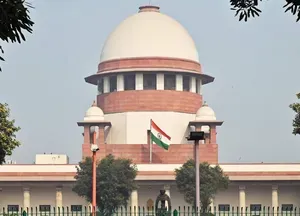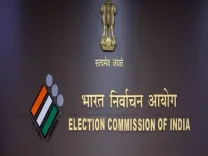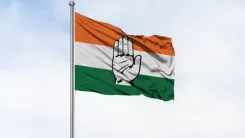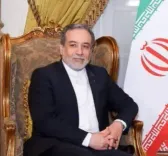Supreme Court's 3-Judge Special Bench to Review Challenges to Places of Worship Act on December 12

New Delhi, Dec 7 (NationPress) The Supreme Court has assembled a three-judge Special Bench to review a series of petitions questioning the legality of certain clauses in the Places of Worship (Special Provisions) Act, 1991.
The Act prevents the initiation of lawsuits aimed at reclaiming places of worship or altering their status from what existed on August 15, 1947.
According to the causelist released on the apex court's website, the Special Bench, led by CJI Sanjiv Khanna and including Justices Sanjay Kumar and KV Viswanathan, will deliberate on this matter on December 12.
In March 2021, a Bench under the then CJI S.A. Bobde had requested the Centre's feedback regarding a petition from advocate Ashwini Upadhyay that questioned the legitimacy of specific provisions of the Act.
The petition claimed, "The 1991 Act was created under the guise of 'Public order', which is a State matter (Schedule-7, List-II, Entry-1), and 'places of pilgrimages within India' also falls under State jurisdiction (Schedule-7, List-II, Entry-7). Thus, the Centre lacks authority to legislate this Act. Furthermore, Article 13(2) forbids the State from enacting laws that infringe upon fundamental rights, yet the 1991 Act infringes on the rights of Hindus, Jains, Buddhists, Sikhs to reclaim their 'places of worship and pilgrimages' destroyed by invaders.
It further stated, "The Act omits the birthplace of Lord Rama while including the birthplace of Lord Krishna, despite both being avatars of Lord Vishnu, the creator and equally revered globally, making it arbitrary."
Meanwhile, the Managing Committee of Varanasi's Gyanvapi Mosque has approached the Supreme Court, requesting the dismissal of the petitions against the Places of Worship Act, arguing that declaring the 1991 Act unconstitutional would lead to severe consequences, undermining the rule of law and communal harmony.
It contended that a petition under Article 32 challenging a legislative measure must prove the provisions' unconstitutionality based on constitutional principles. The rhetorical arguments for retribution against historical rulers should not form a basis for constitutional challenges.
"The Parliament, in its wisdom, enacted this legislation acknowledging the secular values embedded in our Constitution. The applicant respectfully requests that while this Hon'ble Court evaluates this challenge to the 1991 Act, the petition should be dismissed for lack of merit," the application stated.
It emphasized that the Parliament, after extensive deliberation and debate, had enacted the 1991 Act as a thoughtful decision to prevent past grievances from affecting the country's future, recognizing the preambular values of secularism and fraternity.
"Nearly three decades post-enactment of the 1991 Act, the petitioner aims to challenge it through a petition filled with rhetorical and communal claims that this Hon'ble Court cannot entertain," the application noted.
It warned that "the implications of the declaration requested by the petitioner would be severe. Recent events in Sambhal, Uttar Pradesh, where a court authorized a survey of the Shahi Jama Masjid immediately after the suit was filed, led to widespread violence resulting in at least six casualties. The declaration sought could trigger similar disputes across the nation, ultimately undermining the rule of law and communal harmony."
The Managing Committee of the Gyanvapi Mosque has been the target of numerous meticulously crafted lawsuits seeking to establish worship rights within the mosque, asserting it as a former temple, with some lawsuits aiming to dismantle the mosque structure and prohibit Muslims from accessing it.
"However, a consistent theme across all these cases is that they fall under the restrictions of Sections 3 & 4 of the 1991 Act. Therefore, the applicant is a vital stakeholder in this challenge and seeks to assist this Hon'ble Court through the present intervention," the application claimed.
Additionally, it noted that currently, there are approximately 20 lawsuits pending in various Varanasi courts seeking to invalidate the protections granted by the 1991 Act and to alter the character of the Gyanvapi Mosque while preventing Muslim access to it.








